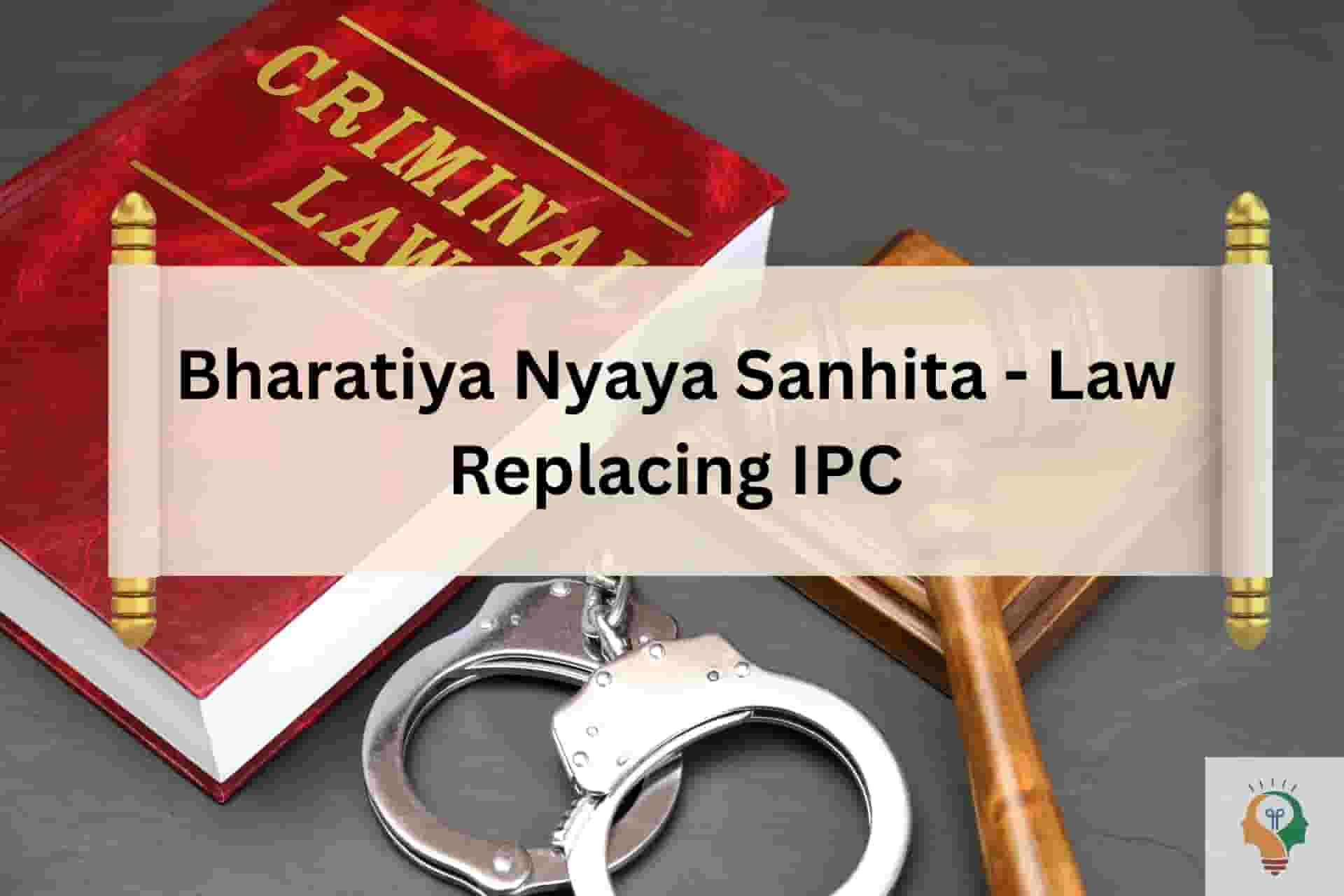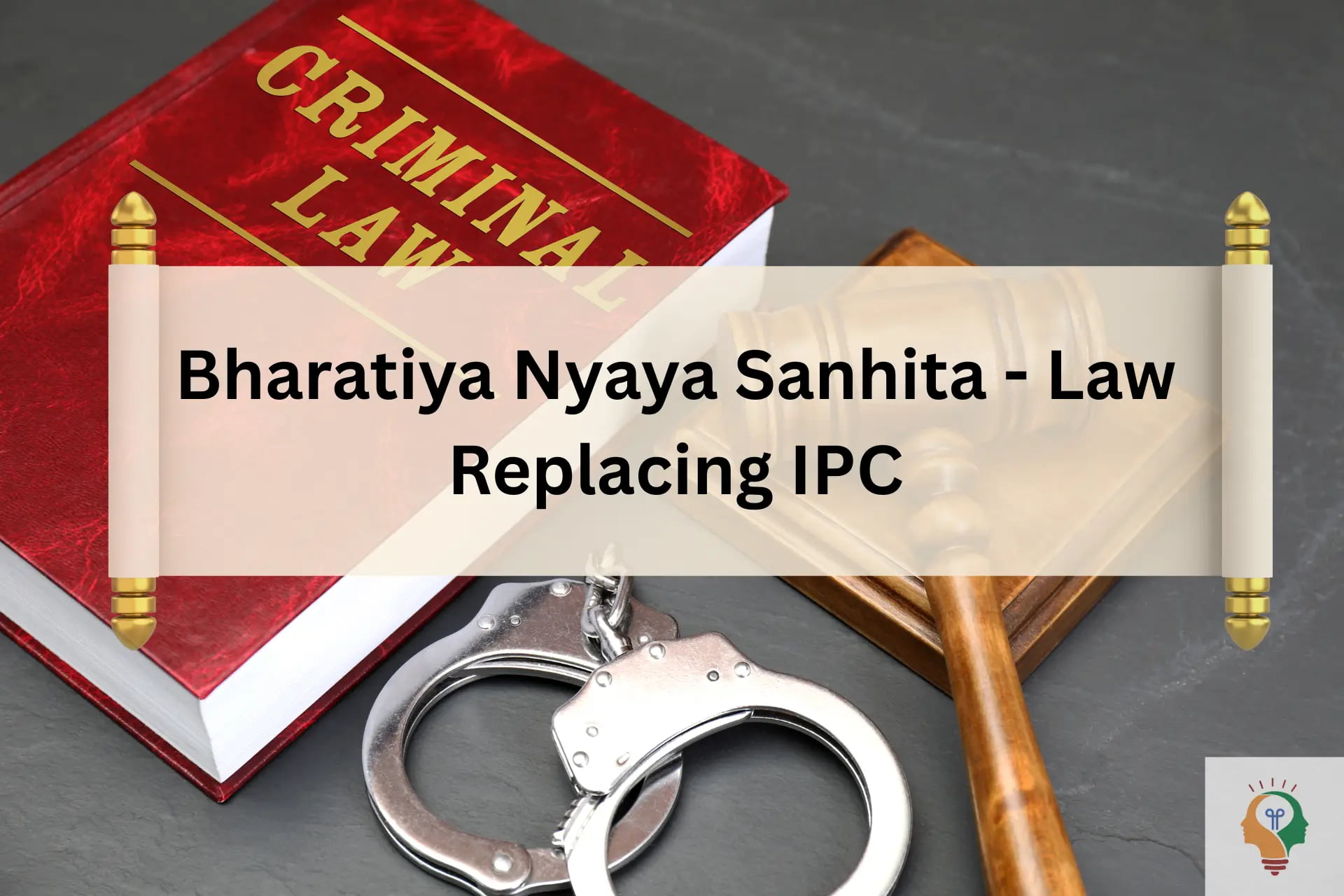Bharatiya Nyaya Sanhita (BNS) Changes Complete Guide
Updated: 20-11-2025 at 3:30 PM
2k


Certain issues required the attention of the parliament. This included recognising and criminalising acts endangering society. There was attention required relating to rephrasing certain provisions to ensure a balance of interests of both the convicts and victims, which led to a need for change. The Indian criminal justice system underwent a huge change, which is the introduction of the Bharatiya Nyaya Sanhita (BNS). BNS is a groundbreaking change as it officially replaced the years-old Indian Penal Code (IPC).
The Bharatiya Nyaya Sanhita is a new law book that comprises clear legal definitions and better reformation-related guidelines. With the introduction of BNS, emphasis has been given on protecting victims’ rights while establishing better and fair guidelines for the rehabilitation of convicts. It is not only updated with the recent types of crimes but also is framed in gender neutral language to make every citizen of India feel inclusive and respected.
There are certain groundbreaking changes brought in by the new criminal laws that everyone must know about. Let us learn more about this law!
Overview
The table below summarises some key details about the Bharatiya Nyaya Sanhita 2024 PDF that one should know.
| Name | Bharatiya Nyaya Sanhita |
|---|---|
| What is Bharatiya Nyaya Sanhita, 2023? | New criminal law replacing the age-old IPC |
| Replaced | Indian Penal Code |
| Objective | To replace age-old laws with new and updated ones |
| Major changes | Clear language, reshaped definitions, and enhanced penalties based on the crimes committed |
Read More: What To Know About The Law For Independent Media In India?
What Is The Bhartiya Nyaya Sanhita?
The Bhartiya Nyaya Sanhita (BNS) is the new criminal law replacing the age-old IPC. It received its presidential assent on December 25, 2023. A recent notification made on July 1, 2024, has officially brought the Act into action.
The new act is friendly towards digitalisation and works in consonance with its fellow acts in this regard. India’s new Penal Code introduces changes such as reshaped definitions, new crimes and enhanced penalties.
A major step towards simplifying legal language for easy interpretation has been made through the Bharatiya Nyaya Sanhita PDF. Unlike the IPC, the BNS uses gender-neutral terms, promoting inclusivity and tolerance. It is also available in several languages, such as Bharatiya Nyaya Sanhita in English or Bharatiya Nyaya Sanhita, 2023 pdf in Hindi. The BNS is mostly a restructuring of the IPC since most crimes and their definitions remain the same. However, in addition to new crimes in the BNS, it has also removed a lot of obsolete provisions.
Let us look at the major changes brought in by this prospective law that aspirants of Bharatiya Nyaya Sanhita UPSC should know about as well!
Also Read: Is Kanyadaan Necessary? New Marriage Law Says 'No'
What Are The Changes Brought In By BNS?
The new Sanhita, which has replaced the colonial penal code, has introduced significant changes to the criminal justice system. Let us have a look at them!
Community Service
A new type of punishment has been introduced under the BNS. While Section 53 of the IPC provides for 5 sorts of punishments, including imprisonment, fine and death, the BNS provides for 6 punishments.
Section 4 of the Bhartiya Nyaya Sanhita provides for Community Service as a punishment. For trivial or reformatory crimes, community services will be awarded for the benefit of convicts as well as society at large. The person undergoing community service shall not be given any remuneration.
Mob Lynching Criminalised
A newly recognised crime which has fed on our society for years now is mob lynching. With the increase in incidents of such lynching and the creation of disharmony in society, the government felt the need to criminalise mob lynching. Section 103 (2) of the BNS provides a punishment of either death or imprisonment with a fine.
Organised Crime
Taking inspiration from one law, such as the Maharashtra Organised Crime Control Act, the government has criminalised organised crime. The definition of organised crime has been expanded and now includes kidnapping, robbery, extortion, cyber crimes, economic offences, etc. Section 111 of the BNS shall deal with organised crime.
Hit And Run Cases
There has been a change in the way cases of ‘hit and run’ will be dealt with in the new law. These came under Section 304 of IPC and shall now be dealt with by Section 106 of BNS. There is a special provision for extreme and strict punishment for those who escape the crime scene and do not report it to the police.
Also Read: What Things You Must Know About The Employment Laws In India?
Sedition
Section 124A of the IPC has been a controversial subject under scrutiny for a while now. It hindered free speech and obstructed the rights of citizens. Prosecution by the State had become easy. Section 150 of the BNS Sedition has been replaced by a punishment for treason.
Snatching
Snatching has been given a separate section in the law. Earlier, it was included in theft. Now, mobile snatching or chain snatching can be reported under Section 304 of the BNS. It is also punishable under Section 112 of BNS as ‘unorganised petty crime’.
Possession of Fake Currency
As against the previous provision of Section 242 of IPC, which criminalised the mere possession of fake currency notes, Section 178 of BNS says otherwise. Mere possession shall not be an offence under the new law.
Conclusion
The Bharatiya Nyaya Sanhita (BNS) is a fierce and dynamic act that accommodates the needs of the future while securing the present. It is a change that has finally happened with the Indian criminal justice system. BNS is not only created using clear language, structured provisions, and recognition of new types of crimes, but it also focuses on the right and fair delivery of justice.
The new Bharatiya Nyaya Sanhita emphasises accountability and transparency while making space for human values like compassion and dignity, which are extremely important for the fair delivery of justice. The government has removed all the old and outdated sections, which shows their commitment toward making a reformative and rehabilitative criminal justice system, not simply a punitive one.
We, as citizens and subjects, must work by it and follow the law, as they are not just guidelines or rules but a disciplined way of living. Remaining aware is also one major duty of every citizen.
Get the latest updates on government schemes and policies with Jaagruk Bharat. Join India's biggest Jaagruk Bharat community. Share your thoughts, questions, and favourite topics with us.
Frequently Asked Questions
0
0
2k
0
0
2k Views
0
No comments available





Our Company
Home
About
T&C
Privacy Policy
Eula
Disclaimer Policy
Code of Ethics
Contact Us
Careers
Cancellation & Refund Policy
Categories
Women
Insurance
Finance
Tax
Travel
Transport & Infrastructure
Food
Entertainment
Communication
Government ID Cards
E-commerce
Traffic guidelines
Miscellaneous
Housing and Sanitation
Sports
Startup
Environment and Safety
Education
Agriculture
Social cause
Employment
Disclaimer: Jaagruk Bharat is a private organization offering support for documentation and government scheme access. We are not affiliated with any government body. Official services are available on respective government portals. Our goal is to make processes easier and more accessible for citizens.
All Copyrights are reserved by Jaagruk Bharat